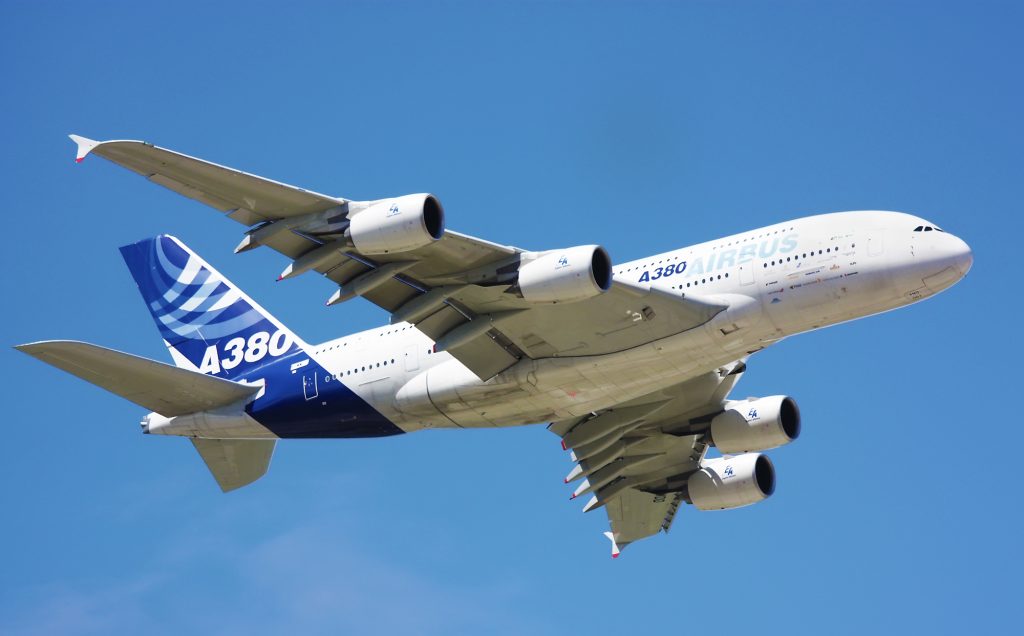Airbus aims to achieve 100% SAF airlines certification for its aircraft
(Sustainabilityenvironment.com) – The Airbus A380 is now one of the largest airliners in operation in international skies. And although industrial production is now finished, the aircraft is still contributing to industry innovation. For example, testing the goodness of the new SAF (Sustainable Aviation Fuel), fuels produced from sustainable resources such as waste oils, agricultural residues or non-fossil CO2.
It happens in France, where at the end of March Airbus used an A380 MSN 1 to make a flight powered exclusively with green aviation fuel. The plane took off on 28 March from Blagnac Airport in Toulouse. The experimental flight lasted about three hours and relied on the performance of a Rolls-Royce Trent 900 engine and a full 27 tons of unmixed SAF. It also allowed Airbus to test the behavior of bio-jet fuel during take-off and landing.
Read also Liquid hydrogen planes? From 2035 they will be reality
Why is this newsworthy of note? Because although SAF is considered drop-in fuel, until now its use has always been linked to mixing with traditional jet fuel. The same Airbus aircraft are currently certified to fly with a mixture of only up to 50% SAF with the addition of kerosene. But the company’s goal is to achieve 100% certification by the end of this decade.
Sustainable aviation fuel, the recipe
The SAF used during the tests was produced in France and more precisely in Normandy by TotalEnergies. Composed of hydrotreated esters and fatty acids (HEFA), the sustainable aviation fuel was completely free of aromatic molecules and sulfur, and was obtained thanks to the recycling of used cooking oil and other waste fats. The A380 is the third type of Airbus aircraft to fly with 100% SAF over the past 12 months; the first was an Airbus A350 in March 2021 followed by a single-aisle aircraft A319neo in October 2021.

